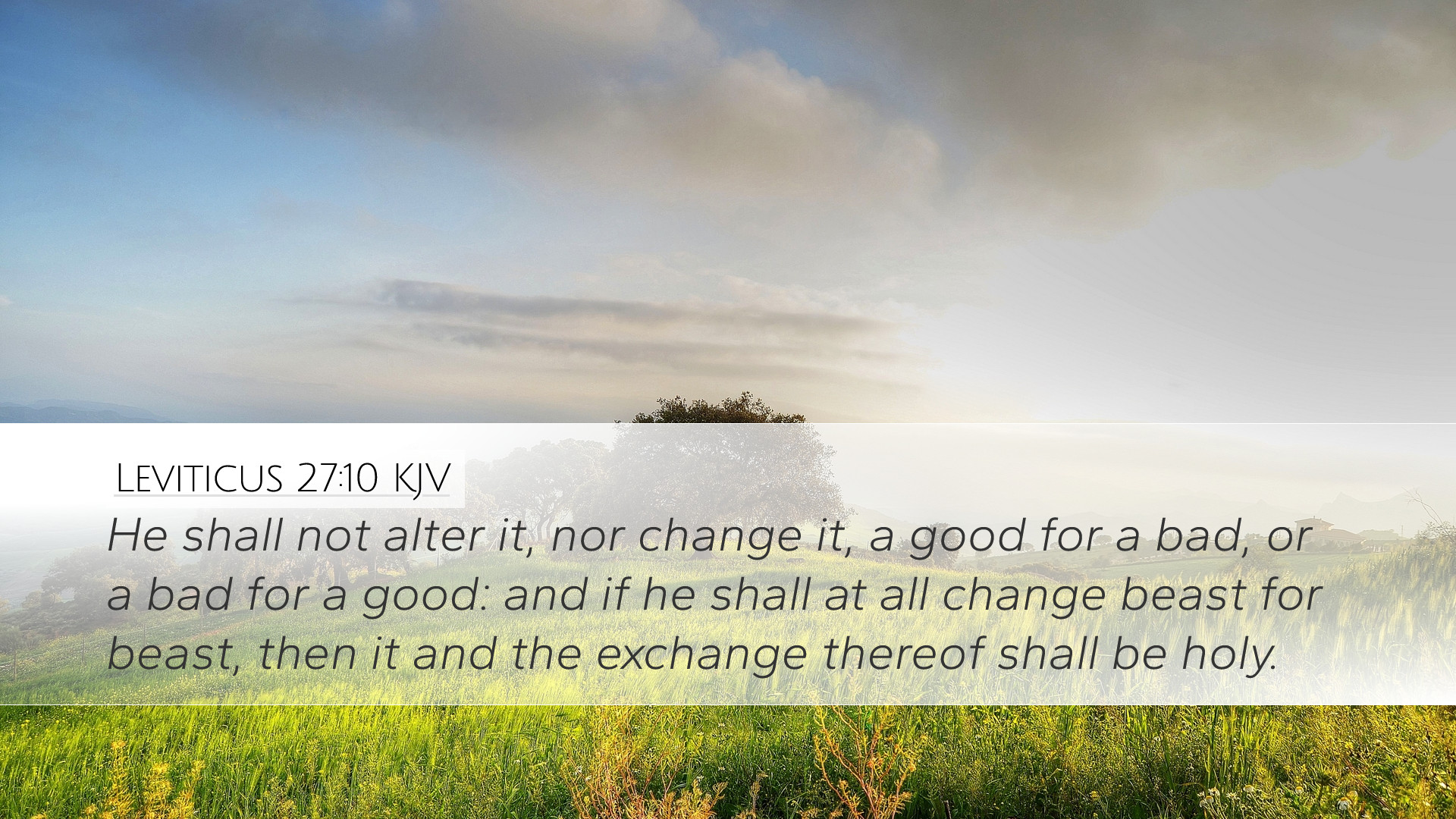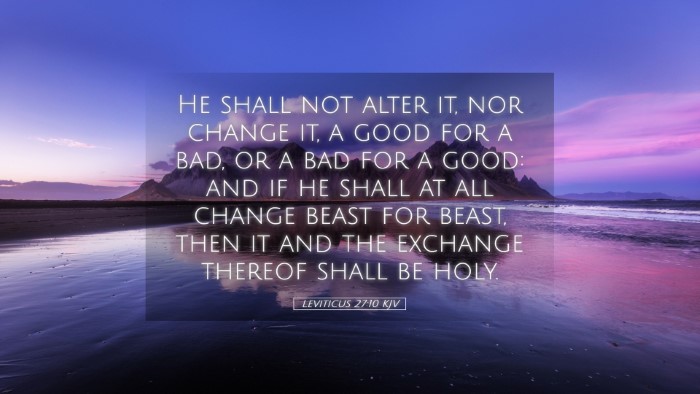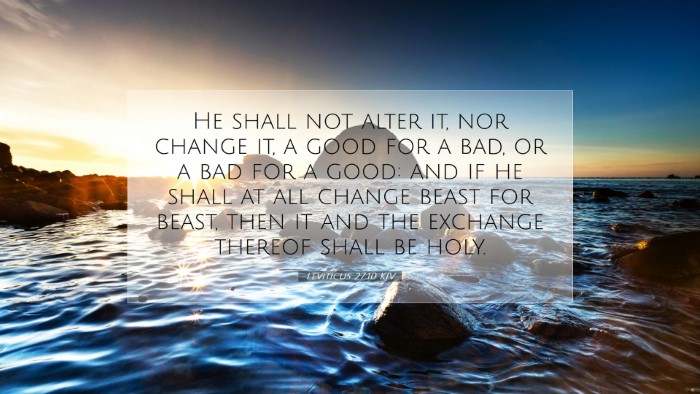Commentary on Leviticus 27:10
Verse Reference: Leviticus 27:10 - "He shall not alter it, nor change a good for a bad, or a bad for a good: and if he shall at all change beast for beast, then it and the exchange thereof shall be holy."
Introduction
Leviticus 27 provides God’s instructions regarding vows and dedications, focusing specifically on how an individual might consecrate items or persons to the Lord. This chapter delineates the valuation of persons and animals in dedication, highlighting their sacredness once devoted to God.
Contextual Background
The sacrificial system and laws presented in Leviticus served to establish the holiness of God and to teach the Israelites about obedience and devotion. Chapter 27 concludes the book with regulations concerning vows made to God, emphasizing the seriousness and permanence of such commitments.
Verse Analysis
Matthew Henry's commentary notes that this verse emphasizes the importance of integrity in the vows made to God. When an individual dedicates something to God, they must adhere to the original terms of dedication without alteration, reflecting a commitment to honesty and faithfulness in their spiritual responsibilities.
Interpretation of Key Phrases
- “He shall not alter it”: This statement underscores the gravity of making promises to God. Changing a dedicated object signifies a lack of reverence for God’s commandments and a misunderstanding of the significance of commitments.
- “Nor change a good for a bad, or a bad for a good”: This part warns against substituting something of lesser value for what was originally promised. The integrity of one’s vow must remain intact, as God’s standards are unchanging and reflect His holiness.
- “If he shall at all change beast for beast”: This clause allows for exchange but maintains that both the original and exchanged must remain within the sacred context of their dedication.
Theological Significance
Albert Barnes reflects on how this directive applies to our relationship with God. Every commitment we make carries immense weight, and as believers, we are called to honor our promises. Altering a vow reflects a misalignment with God’s character and His expectations of holiness.
Moreover, Adam Clarke emphasizes the moral implications of this passage, suggesting that it acts as a guide on how we should approach our commitments to God and to one another. The heart of the believer should be to adhere to the markers of their faith with sincerity and diligence.
Application for Pastoral Practice
This verse serves as a reminder to pastors regarding the importance of teaching congregations about the solemnity of vows, whether during baptism, marriage, or other forms of commitments. Pastors can highlight the importance of following through on promises made to God and being mindful of the weight such commitments carry.
Educational Insights for Students and Scholars
For students of theology, Leviticus 27:10 presents a valuable lesson on scriptural integrity. It challenges readers to consider the implications of their commitments in both their spiritual walks and their interactions with others. Scholars can delve into the historical cultural practices surrounding vows in ancient Israel, comparing them with contemporary understandings of oaths and covenants.
Conclusion
Leviticus 27:10 encapsulates vital truths about dedication, integrity, and holiness. The serious nature of vows to God calls believers to a higher standard of faithfulness and accountability, helping them to acknowledge both their devotion and their responsibility before God. This passage not only enriches our understanding of Old Testament law but also enhances our commitment to living a life that honors God with our promises.


